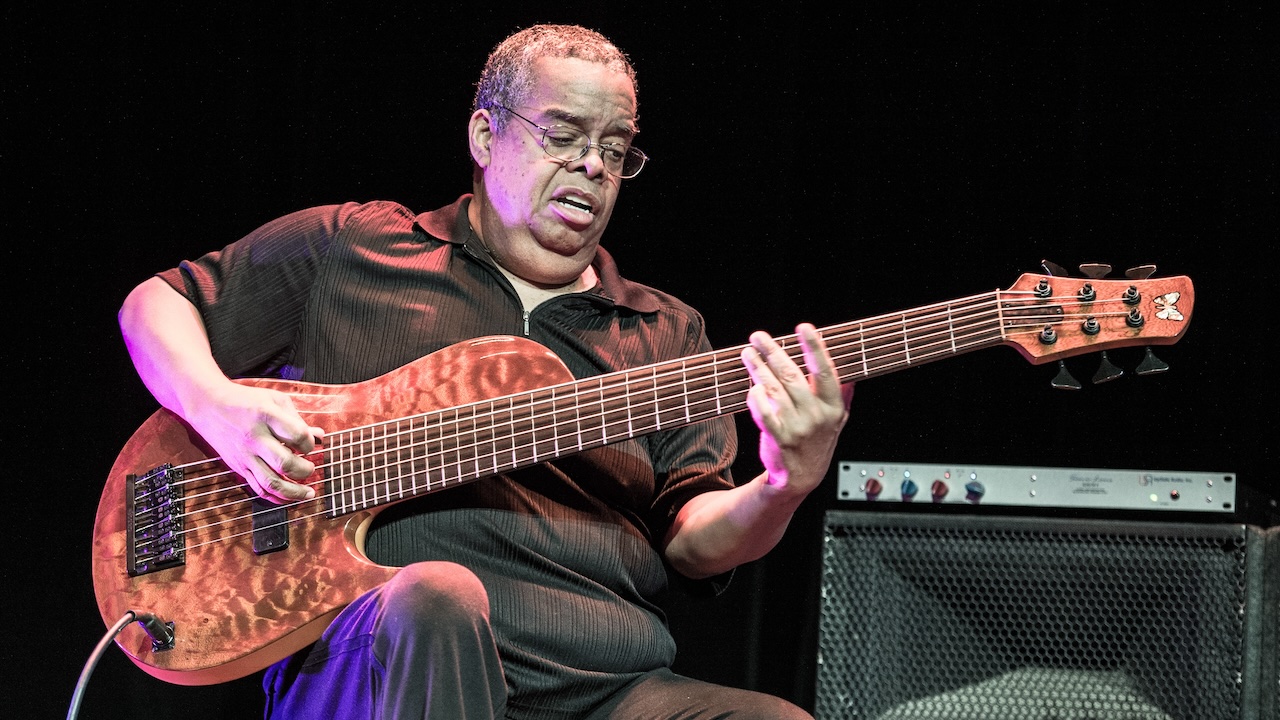“There was an edge-of-your-seat quality about the way my father played. If I have a little bit of that, it’s a great thing”: Duane Betts on balancing the musical legacy of his dad, Allman Brothers legend Dickey Betts
In his first interview since Dickey Betts’ passing, the guitarist and songwriter explains what he learned about melody from his dad, those live jams with Marcus King and Derek Trucks – and how he learned to shoulder the inevitable comparisons
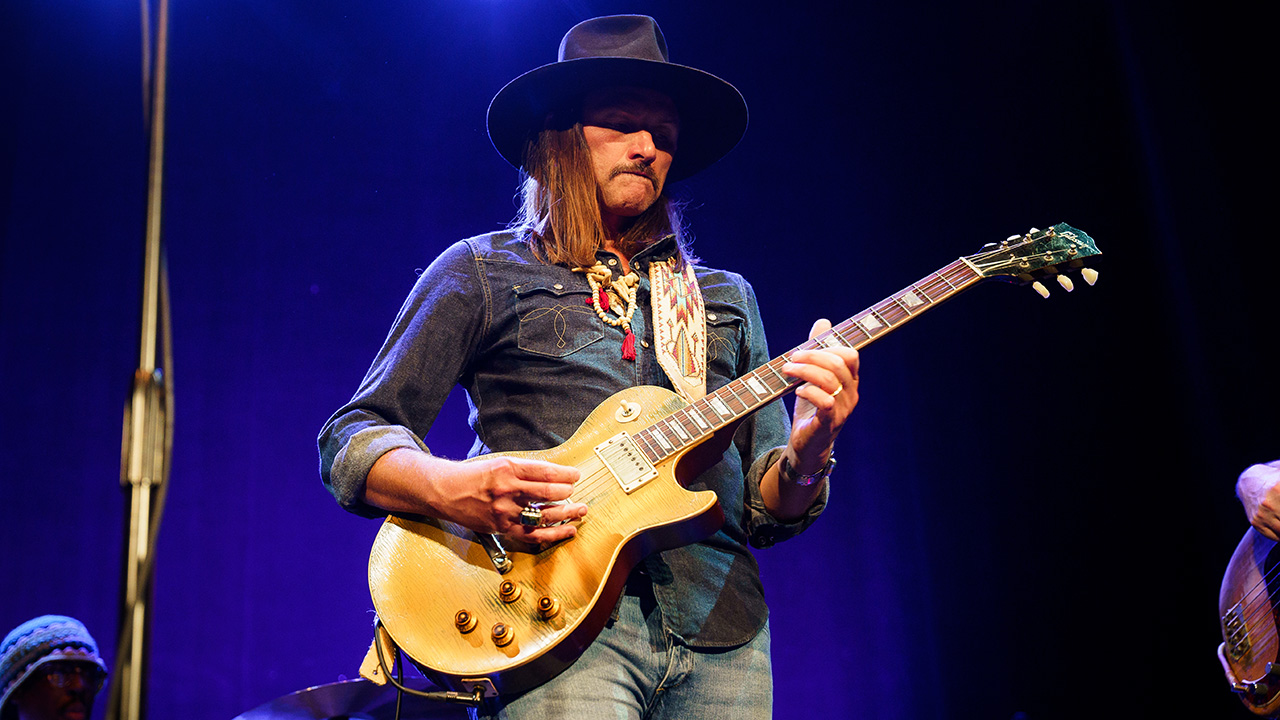
All the latest guitar news, interviews, lessons, reviews, deals and more, direct to your inbox!
You are now subscribed
Your newsletter sign-up was successful
Sure, Duane Betts is the son of legendary Allman Brothers six-stringer Dickey Betts and he’s spent plenty of time celebrating his late father’s legacy. But having been a member of Whitestarr and Dawes, and having dropped a solo debut Wild & Precious Life last year, the 46-year-old has long proven than he can stand on his own two feet, artistically.
Following Dickey’s passing in April, Betts is in line to become, in the eyes of some fans, a custodian of that legacy – an idea that is much a burden as a blessing. Still, as Betts points out, he has experience in treading that line already and he has learned how to carry the lessons of his father with him.
“There’s little things I remember him saying,” Betts tells Guitar World. “Like, ‘Playing guitar is like telling a story.’ He was a very melodic player; he wasn’t always just pulling things out of his bag of licks. He had such a beautiful way of phrasing and intertwining, even though it was made up on the spot.”
Betts has taken those examples to heart for songs like Colors Fade, (the acoustic version of which was recently issued as a standalone single), Cold Dark World (featuring Marcus King) and Stare at the Sun (featuring Derek Trucks), all of which demonstrate his chops as both a guitarist and songwriter.
“I think there’s always a place to celebrate the Allman Brothers legacy,” he says. “But as long as I’m making records, I don’t want to get too into that.”
He’s working on new music, though he’s unsure what form it will take. But that’s just fine, he says, referring to another lesson he picked up from Dickey:
“His playing was very much about being in a zone. When I was really young, I asked him how he got the guitar to sound like that; and he said, ‘Go play to nature, and it can never be wrong.’ So If it fits with what’s happening in your surroundings, then it’s right.”
All the latest guitar news, interviews, lessons, reviews, deals and more, direct to your inbox!
You’ve got a new single out, the acoustic version of Colors Fade. What’s the story behind it?
“It’s the duo version Johnny Stachela and I did before we did the record. It was done down at my dad’s house, in the study where we wrote a lot of the record. We wanted to get some demos that were pretty far along, and with that one, when we went back and listened, it really sounded good.”
Your solo debut, Wild & Precious Life, has been a success. What does that mean to you?
“I’m just so grateful for everybody’s support. It just makes me feel really good when people are affected in a positive way by the songs I’ve written or co-written. I’m really proud of that record.”
You've spent a lot of time celebrating the Allman Brothers and played in bands – but what’s your process as a solo artist?
“I just try to play for the song, regardless of whether it’s a solo record or an Allman Brothers Band thing. The main difference is my singing voice. I’ve been a guitar player for a long time, and I only started singing in my late ’30s, so it was a big step. But the process of doing the record was basically sticking with my normal instruments then adding things to the periphery to kind of spice it up.”
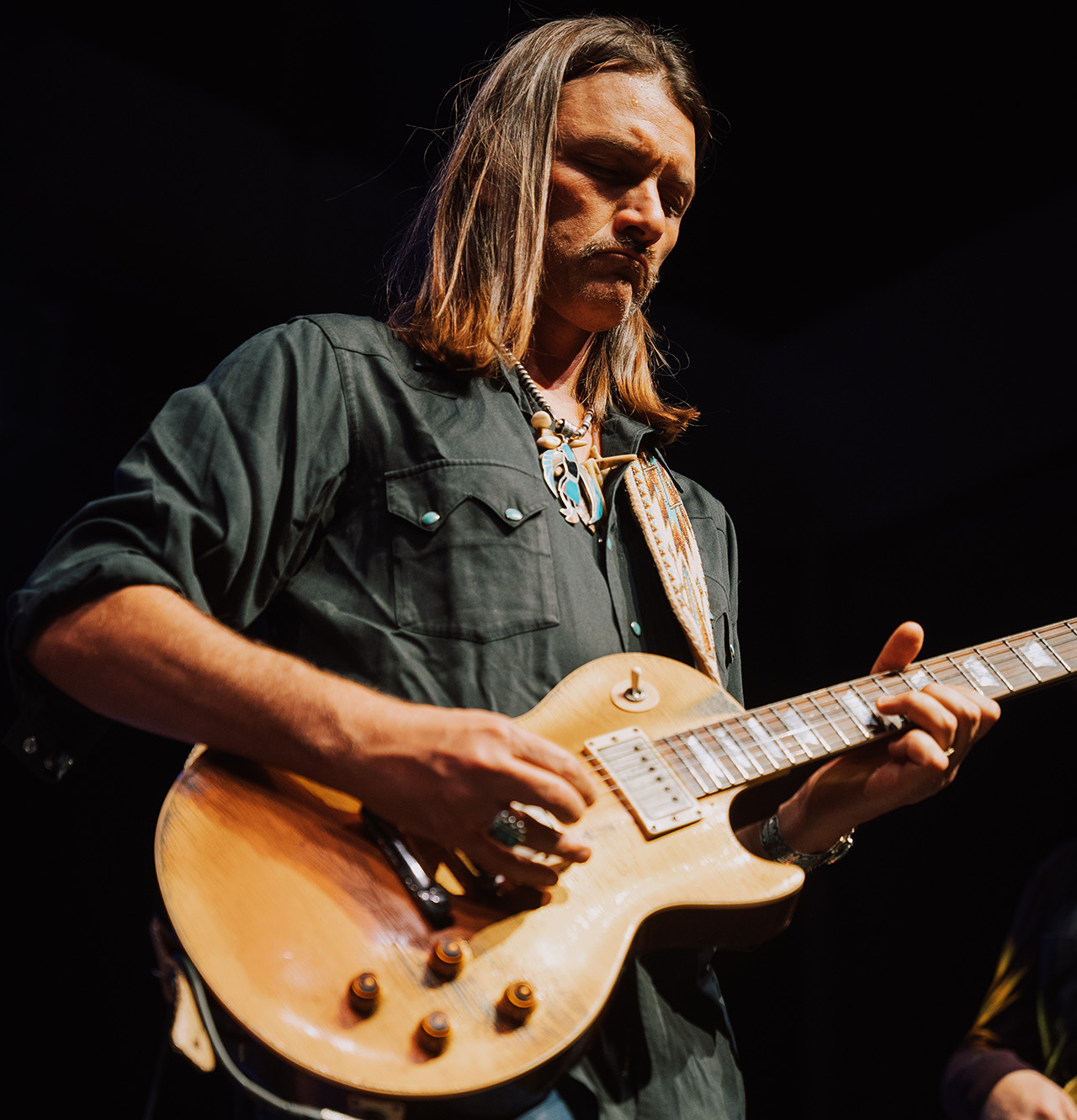
You’re moving into a next chapter of your life after your dad’s passing. Do you see it as a point where you start focusing on just your music?
“There’s plenty of people out there who are gonna pay tribute to the Allman Brothers – as they should – and if I’m one of them, it’s a special occasion. I hold that music in a sacred place.
“But I think it needs to be kept in its place and not become what you’re known for. I want to make my records; I’m gonna write my songs. As long as there’s a balance, I’m totally okay with doing both.”
Inevitably, comparisons are made between you and your dad. Has that been a tough load to shoulder?
I’m proud to be a part of a rich legacy. But I don’t want everything to be about that
“Not lately. Maybe when I was younger – you know, unconsciously, I’m sure. But it really depends on your perception of how you want to look at things. It’s really a blessing in a lot of ways. I’m really proud to be a part of a rich musical legacy. But I don’t want everything to be about that.
“I want to remain true to who I am – I don't really want to do a record that sounds like Interpol or something! I love that music, but I don’t think that’s who I am.”
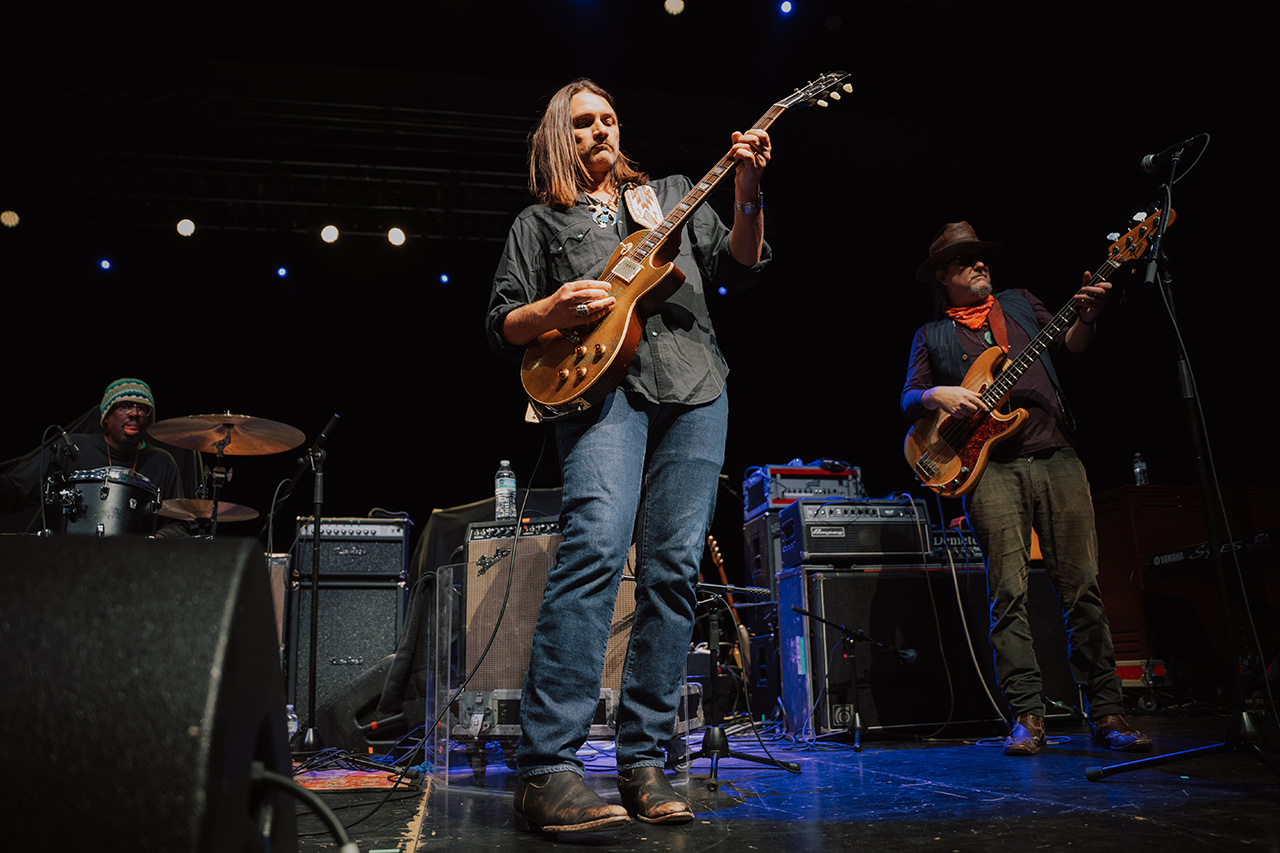
When you pick up the guitar these days, where do your instincts take you?
“When I’m doing it for an audience, I’m always trying to focus on melody. And in jams, if it’s a longer jam, I always try to tell a story and play something interesting. There’s a lot of great guitar players who can play circles around people, but none of that really matters.”
What does matter?
“It’s really about having a unique voice, trying to take the listener on a journey, and making them feel like they have no idea what’s going to happen, but they still feel safe.
“There was an edge-of-your-seat quality about the way my father played. If I have a little bit of that, it’s a great thing. To channel that and go for it is one of the most enjoyable and freeing parts of playing music and guitar. It’s an endless expression.”
You have a lot of shows coming up. Will your setlist be mostly solo material, or will there be room for some Allmans jams?
“There will probably be something of my dad’s in there. And we do other covers, but it just depends. The guys in my band have all sorts of stuff up their sleeves – every now and then, we even do a Peter Tosh tune. I might do a Rolling Stones tune; there’s a bunch of stuff to throw in there, like a Grateful Dead tune.”
You've been jamming with a lot of fellow guitarists lately, like Lukas Nelson, Derek Trucks and Marcus King. Do you anticipate more of that once you hit the road?
“Most of that stuff is really spontaneous. Sometimes you're just in the same town as somebody. I think I sat in with Lukas and Marcus three days apart at the same venue.
“I didn’t even know Marcus was in town until my wife told me that afternoon. I hit him up and he said, ‘Yeah, come on down. Bring your guitar.’ I always love sitting in with people who I admire. But obviously, I would go see him anyway, regardless of whether I was playing.”
I’ve used some of the family guitars… there’s a ’61 Gibson ES-335 that sounds amazing
Are you planning on taking any of your dad’s gear on the road?
“I’ve used some of the family guitars in the past. There’s a really nice ’61 Gibson ES-335 that sounds amazing – it’s on the last record. I’ll continue to use that on certain things. And there’s a really nice hardtail ‘50s Fender Strat that I’ve used in the past. I wouldn’t bring it on tour without a designated guitar tech; and if it’s a fly-in date, I wouldn’t bring any of those. But I definitely look forward to recording with them.”
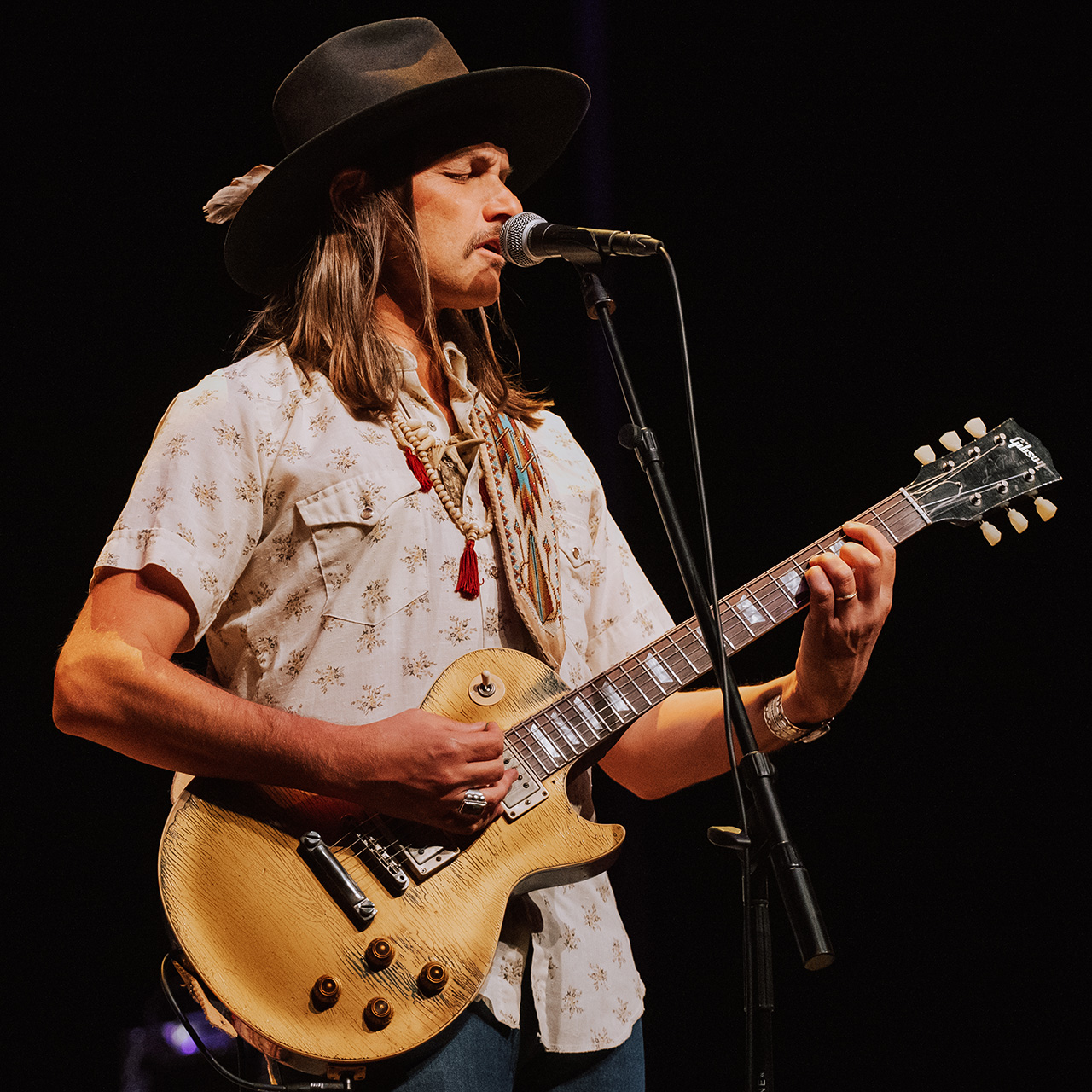
What are the key elements of your live rig?
“It’s kind of boring, really – I pretty much play straight into the amp. I have a ’65 or ’66 Fender Super Reverb. George Alessandro [of Alessandro Products] recently went through my amps, and they just sound amazing. I always have a couple of them on the road, and they both sound great.
“Lately, I’ve been using my Gold Top, the number one prototype of the Dickey Betts signature model, which I’ve had for years. If I’m doing fly-ins it’s pretty much my go-to; it’s a really nice guitar, but it’s not a vintage instrument.
“Sometimes I’ll use a DanDrive fuzz which J.D. Simo gave me – it’s a designer pedal. I used that on Cold Dark World. I pretty much always have an Analog Man King of Tone overdrive and a tuner in line.
“The King of Tone is just for a boost; I use just the right side of that. I don’t really mess with the left side. It’s just a little extra bit of sustain. It’s really transparent and minimal.”
- Duane Betts’ tour continues on July 12. Wild & Precious Life is on sale now.
Andrew Daly is an iced-coffee-addicted, oddball Telecaster-playing, alfredo pasta-loving journalist from Long Island, NY, who, in addition to being a contributing writer for Guitar World, scribes for Bass Player, Guitar Player, Guitarist, and MusicRadar. Andrew has interviewed favorites like Ace Frehley, Johnny Marr, Vito Bratta, Bruce Kulick, Joe Perry, Brad Whitford, Tom Morello, Rich Robinson, and Paul Stanley, while his all-time favorite (rhythm player), Keith Richards, continues to elude him.



